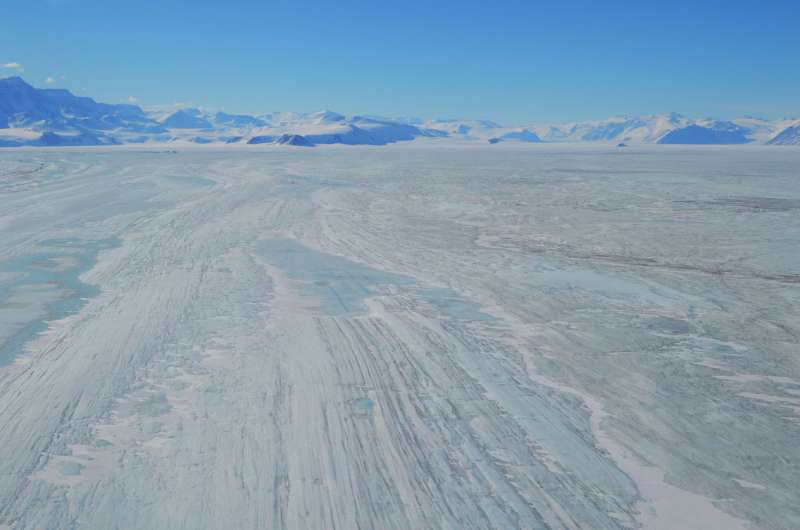Climate change accelerating rise in sea levels

A new study from the University of Waterloo discovered that rising sea levels could be accelerated by vulnerable ice shelves in the Antarctic.
The study, by an international team of polar scientists led by Canada Research Chair Christine Dow of Waterloo's Faculty of Environment, discovered that the process of warmer ocean water destabilizing ice shelves from below, is also cracking them apart from above, increasing the chance they'll break off.
"We are learning that ice shelves are more vulnerable to rising ocean and air temperatures than we thought," said Dow. "There are dual processes going on here. One that is destabilizing from below, and another from above. This information could have an impact on our projected timelines for ice shelf collapse and resulting sea level rise due to climate change."
The study, which was conducted over two years, applied methods similar to forensic science on ice shelves which had already calved. Using radar surveys and Landsat imagery, Dow reports direct evidence that a major 2016 calving event at Nansen Ice Shelf in the Ross Sea was the result of fracture driven by channels melted into the bottom of the ice shelf. The surveys also demonstrated that similar basal channel-driven transverse fractures occur elsewhere in Greenland and Antarctica.
As warmer salt water erodes channels into the ice that attaches glaciers to stable land, it also generates massive vertical fractures splitting glaciers from above and below. Surface water melting on top of the ice shelves then pours into these cracks, accelerating the problem further.
"This study is more evidence that the warming effects of climate change are impacting our planet in ways that are often more dangerous than we perhaps had thought," said Dow. "There are many more vulnerable ice shelves in the Antarctic that, if they break up, will accelerate the processes of sea level rise."
The study, titled Basal channels drive active surface hydrology and transverse ice-shelf fracture, was recently published in Science Advances.
More information: C.F. Dow at University of Waterloo in Waterloo, ON, Canada el al., "Basal channels drive active surface hydrology and transverse ice shelf fracture," Science Advances (2018). advances.sciencemag.org/content/4/6/eaao7212
Journal information: Science Advances
Provided by University of Waterloo


















